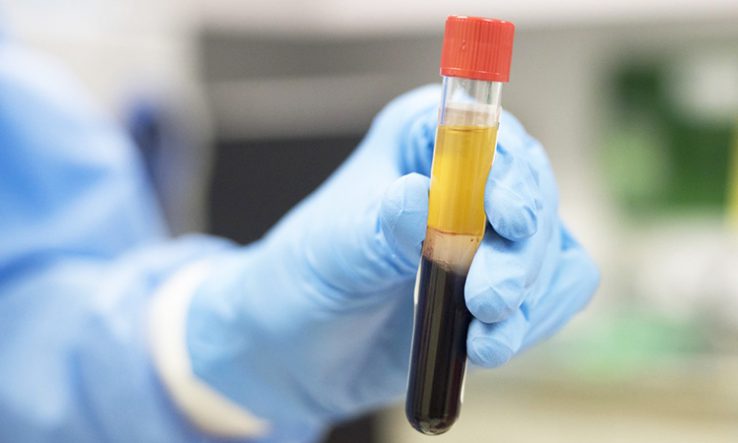
Image: US Airforce Medicine
Stellenbosch in touch with communities involved in Sanger DNA study
Stellenbosch University says some of the DNA samples at the centre of allegations of misconduct have been returned to South Africa, while the United Kingdom institute that is the target of complaints denies any wrongdoing.
Media reports this week suggested that the Wellcome Sanger Institute near Cambridge had developed commercial applications from samples from African communities collected by Stellenbosch and other institutions, but permission had been obtained only for their use in non-profit medical research.
In a 15 October statement Sanger denied the allegations, saying it had been cleared of any wrongdoing by independent investigations.
The communities involved were contacted “early on” after whistleblowers raised concerns about the use of the samples, Therina Theron, senior director of research and innovation at Stellenbosch, said in a statement emailed on 16 October.
“Stellenbosch University has been investigating this matter since early 2019. We have instructed the Wellcome Sanger Institute to cease any current or planned commercial activities related to the DNA and data in question, and to return the samples and data to the university,” Theron said.
“We received a written undertaking from [the Wellcome Sanger Institute] that these activities have been stopped. We are still awaiting a formal response from the institute to provide more clarity on their actions.” In the meantime, she said, “all remaining” DNA samples collected by Stellenbosch have been returned “to the best of our knowledge”. The datasets pertaining to the university’s samples are currently being transferred back as well, she added.
“We have made contact with the relevant community participants early on in this process to inform them of what has happened, and of the university’s proposed course of action—to request their in-principle support,” she said. “The university remains in contact with the relevant community and keeps them informed of developments.”
Earlier this week The Times newspaper in the UK reported whistleblowers’ allegations that hundreds of samples—some collected from indigenous communities such as the Nama people of Southern Africa—had been used to develop commercial applications at Wellcome Sanger Institute without consent from the donors.
Stellenbosch said it “regards its undertakings to research participants and the protection of their rights through adherence to the informed consent agreement as our priority and responsibility. Respect for autonomy is one of the fundamental principles of research integrity and ethics.”
In its statement, Sanger said, “The inaccurate allegations refer to specific research that aimed to support scientific discovery with partners working in Africa. The Sanger Institute has not commercialised any products based on this research and it has not received and will not financially benefit from any revenues.”
A version of this article also appeared in Research Europe